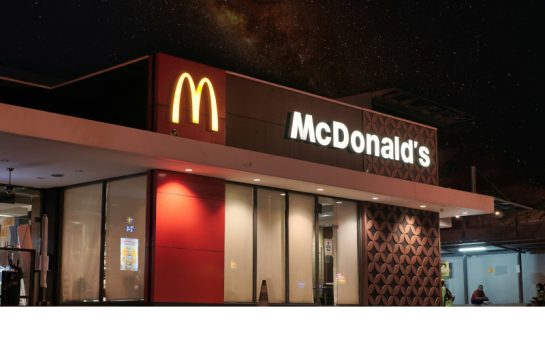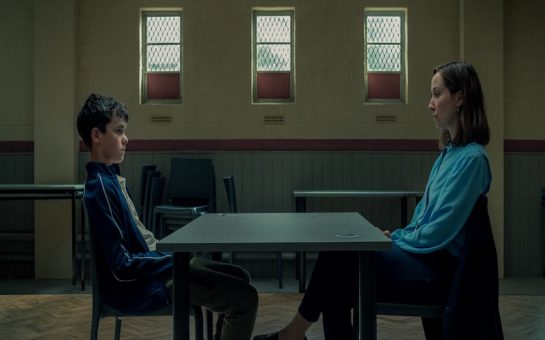The UK box office saw a huge Bond boost, with the biggest October since 2012 and weekend earnings almost 50% higher than in 2019.
October saw an enormous bump in weekend cinema revenues from £67,374,698 in 2019 to £99,579,924 in 2021 according to figures from the British Film Institute (BFI).
In the history of the BFI’s box office records, which started in 2002, higher October admissions have only been seen twice before, with 16.44 million in 2021, 16.84 million in 2012 and 17.29 million in 2003.
This huge attendance and sizeable haul has largely attributed to the success of No Time To Die, which was released on 30 September and has earned over £94 million in the UK so far.
Ian Cade, Research Manager at the BFI, said: “Bond has been very key in driving the figures up and those numbers are quite in excess of what we thought the highest limit for the film would be.
“If you were to ask me the day before Bond was released what I thought the October data would look like, it’s almost double what I thought it was going to be.
“The box office has been very healthy and it’s not just Bond that’s done it, other films have also been performing well, so it feels like the reestablishing of routines of going to the cinema.”
Legal restrictions on cinema capacity ended on 19 July along with other lockdown measures, yet box office revenues remained at just over half what they were in 2019 throughout August and September.
The BFI’s 2021 Q3 box office report showed that 10.4 million people attended the cinema in August 2021, compared with 15.6 million in 2019, and only 6.5 million attended in September this year, compared with 11 million two years ago.
However, Cade expects the Q4 report to be largely back to pre-pandemic figures, driven heavily by the increase in turnout throughout October.
The BFI has its own four-screen cinema venue on the South Bank, and collects and compiles its box office statistics from Comscore International Box Office Essentials, which receives overnight data uploaded directly from the vast majority of cinemas.

Some cinemas still enforced their own social distancing requirements after legal restrictions were lifted, which could help to explain the low August and September turnout, but Cade felt there were a mixture of contributing factors.
He said: “A lot of the films that have done well post pandemic have been aimed at a similar sort of audience, a younger demographic that are pulled in by big blockbuster, Marvel universe type films, and Bond was the breakthrough that pulled in a broader audience.
“The demographics of who’s going to the cinema has been much broader since then, perhaps because people were initially hesitant to return or it could be a lack of titles aimed specifically at that part of the market.”
October saw major releases including Venom: Let There Be Carnage, The Addams Family and Dune, the latter of which has earned more than £20 million in the UK, topping the cume of its director Denis Villeneuve’s 2017 film Blade Runner 2049.
The London Film Festival was also held both digitally and in person at the start of the month, with a host of star-studded premieres on the South Bank attended by Mayor of London Sadiq Khan, Beyoncé, George Clooney and Idris Elba, amongst many others.
So far Ghostbusters: Afterlife and Marvel’s Eternals have both released in November and drawn large crowds, with the weekend figures for the first 3 weeks of the month tracking close to 2019.
Cade said: “Previously we were sort of looking at halves of pre-pandemic runs, now we’re looking at sort of 10 per cent less or similar, so it’s got much closer.”
This recent trend of increased attendance marks good news for theatrical exhibition, as the pandemic saw many film releases delayed and some which were originally set for cinema release sold to the ever expanding streaming market.
There have been questions about the future of cinematic distribution, but Cade felt that while changes to the traditional model are likely here to stay, they were not necessarily wholly negative for the big screen.
He said: “I think a shortened release window or simultaneous releases of cinema and streaming is something that’s probably going to feature much more going forward than it did prior to the pandemic, but that was already coming in before the pandemic.
“And one thing that we have seen is that even players like Netflix are much keener now to release their content in cinemas.
“Having a cinematic release generates interest in films much more than when they are just released on a streaming platform, as there seems to be a buzz that cinemas are still seen as part of that cultural frame.”
Cade noted that Netflix and Sky don’t report their data from simultaneous cinema releases, leaving a section of the box office missing in reported totals and meaning the outlook is actually slightly better than it seems.
This is particularly relevant considering the release of Red Notice earlier this month, which drew crowds to cinemas as well as gaining record viewership on Netflix.
However, some have questioned whether mid-budget films will still have a place on the big screen post-pandemic, or whether financial concerns and diminishing audience attendance will mean they are reserved for streamers.
Cade said: “I think there probably are some films that are going to be more pushed towards a streaming service and obviously the big spectacle blockbuster ones will remain in theatres.
“But I still think there is sort of a cinephile aspect to it – independent or mid-range films are often targeted at a very cineliterate audience who want to go to the cinema.
“People are still going to the cinema even though they can watch everything at home, you could go and watch Bond on Amazon now but people are still going to the cinema to watch it.”
Major upcoming December releases include Spider-Man: No Way Home and Steven Spielberg’s adaptation of West Side Story, the latter of which Cade admitted his team are particularly interested in.
“It has a broader audience than we assume for a Marvel title or ones like that, so it will be interesting to see how that performs, because it will give us an idea of what types of audiences are ready to come back to the cinema.”
Featured image credit: “Daniel Craig – Film Premiere “Spectre” 007 – on the Red Carpet in Berlin” by Glyn Lowe is licensed with Attribution 2.0 Generic (CC BY 2.0). Creative Commons.




